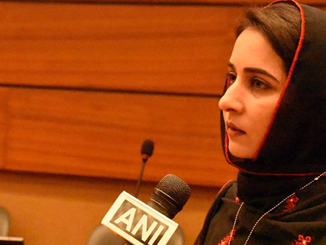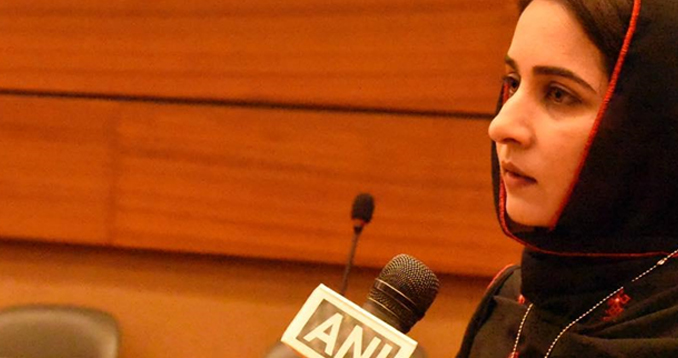

Karima Baloch was a vocal critic of the Pakistani government. (Twiiter/@KarimaBaloch)
Human rights activist Karima Baloch was found dead in Toronto, Canada on Sunday, the Balochistan Post reported. Baloch was a vocal critic of the Pakistani government and had actively worked to highlight human rights violations perpetrated upon people in Balochistan.
In 2016, BBC had included Baloch in their ‘BBC 100 Women 2016’ list for her work involving “campaigns for independence for Balochistan from Pakistan.” She had used her social media profile to highlight abductions, torture, forced disappearances and other human rights violations that people in Balochistan were being subjected to by the Pakistan government and the army.
In her activism, she had placed emphasis on fighting for the rights of Balochi women, and had highlighted how the legal system and religious groups in Pakistan would use state and social machinery to intentionally target women, particularly from vulnerable groups.
In her last tweet on December 14, she had shared a news report by The Guardian titled ‘Kidnap, torture, murder: the plight of Pakistan’s thousands of disappeared’.
According to The Balochistan Post, Toronto police had stated that Baloch was last seen on December 20 in the Bay Street and Queens Quay West area in Toronto and had sought public assistance in locating her. Baloch’s family later said that her body had been found and requested for privacy, the news publication reported. Baloch was living with refugee status in Canada because she had been targeted for her activism in Pakistan.
This isn’t an isolated occurrence. Earlier this year in March, Sajid Hussain, founder and chief editor of The Balochistan Post, who had consistently highlighted human rights violations that Baloch people were being subjected to, was found dead in the Fyris River near Uppsala, Sweden. He had been missing for days before his body was found. Hussain had fled Pakistan in 2017 and had sought political asylum in Sweden after he had been subjected to death threats, police raids, interrogation and other harassment for his work.

Leave a Reply